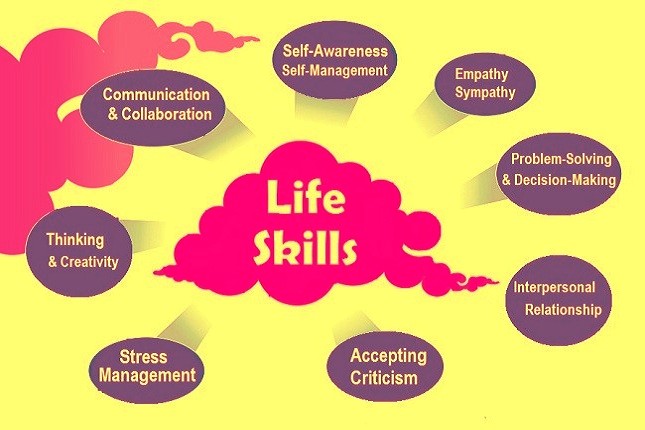

Goal setting is one of the most important skills that a student can develop. It is the process of identifying specific, measurable, achievable, relevant, and time-bound objectives, and then working to achieve them. Setting goals helps students to prioritize their time and energy, and gives them direction and purpose in their academic and personal lives. In this blog post, we will explore the importance of goal setting for students, and provide some tips and strategies for setting and achieving goals.
Why is goal setting important for students?
When students set goals, they become more motivated and focused. Having a clear objective gives them a reason to work hard and stay committed to their studies. This motivation and focus can help them overcome obstacles and challenges along the way, and stay on track to achieving their goals. So, setting goals increases the focus of students.
Goal setting is also linked to improved academic performance. Students who set goals are more
likely to achieve higher grades and excel in their studies. By setting goals, they can identify areas where they need to improve and develop a plan to address those areas. This helps them to stay focused and motivated, and to make progress towards their academic objectives.
Setting goals teaches students important life skills such as time management, organization, and self-discipline. These skills are valuable both in the classroom and in the workplace, and can help students to succeed in all areas of their lives.

When students set goals, they must reflect on their strengths and weaknesses, and identify areas where they need to improve. This self-reflection helps them to develop a better understanding of themselves, their values, and their priorities. It also helps them to become more self-aware and to make better decisions about their academic and personal lives.
Tips for setting and achieving goals
When setting goals, it is important to make them specific and measurable. This means defining exactly what you want to achieve, and how you will measure your progress towards that goal.
For example, instead of setting a goal to “improve my grades”, you might set a goal to “raise my
English grade from a C to a B by the end of the semester”.
It is important to set goals that are achievable, given your current abilities and resources. Setting unrealistic goals can lead to frustration and disappointment, which can undermine your motivation and commitment.
Goals should be relevant to your overall objectives and priorities. They should align with your values and aspirations, and be meaningful to you personally. When setting goals, ask yourself why this goal is important to you, and how it will help you achieve your broader objectives. This way it’s easier to work towards achieving the goals in the long run.
Once you have set your goals, it is important to create a plan of action to achieve them. This plan should outline the specific steps you will take to reach your goals, and the timeline for completing those steps. Breaking down your goals into smaller, manageable tasks can help you stay motivated and focused.
Monitoring your progress towards your goals is important to ensure that you stay on track and make necessary adjustments along the way. Regularly checking your progress can also help you stay motivated and celebrate your successes along the way. While setting goals can bring about numerous benefits, the disadvantages of not setting goals can be equally significant, and can have a lasting impact on a student’s academic and personal life. In this extended blog post, we will explore the potential drawbacks of not setting goals and how it can hinder a student’s success.
Disadvantages of Not Setting Goals
Not having specific goals can lead to a lack of direction and focus. Without clear objectives, students may not know what they want to achieve or where to direct their efforts. They may also feel overwhelmed by the sheer amount of work they have to do, without knowing where to begin or how to prioritize their tasks.
Without goals, students may be more likely to procrastinate and struggle with time management. If they don’t have a clear objective to work towards, they may be more likely to put off important tasks until the last minute. This can lead to increased stress, anxiety, and poor performance.
Without goals, students may lack the motivation to work hard and stay committed to their studies. They may feel uninspired and directionless, which can lead to a lack of engagement in their coursework and extracurricular activities.
Not setting goals can make it difficult for students to measure their progress and track their achievements. Without clear objectives, they may not know how far they’ve come or how much they’ve accomplished. This can lead to a lack of confidence and a feeling of being stuck in a rut.
Without goals, students may miss out on opportunities for personal growth and development.
Setting goals can help students identify areas where they need to improve and develop new skills. Without specific objectives, they may not be aware of these areas, and may miss out on opportunities to learn and grow.
In addition to these disadvantages, not setting goals can also have long-term consequences. For
example, students who lack direction and focus in their academic and personal lives may struggle to make important decisions about their future. They may also miss out on opportunities for career advancement and personal fulfillment.
Tips for overcoming the disadvantages of not setting goals1. Start small
If you’re not used to setting goals, it can be overwhelming to try to set big, ambitious objectives. Instead, start small by setting achievable goals that will help you build momentum and confidence. For example, you might set a goal to complete all your homework for the week by Wednesday evening.
If you feel overwhelmed by the amount of work you have to do, try prioritizing your tasks based on their importance and urgency. This can help you focus on the most important tasks first, and prevent you from feeling overwhelmed by the sheer amount of work you have to do.
Creating a routine can help you stay focused and motivated, even when you don’t feel like working. Try to establish a consistent schedule for studying, completing homework, and pursuing extracurricular activities. This can help you stay on track and make progress towards
your goals.

If you’re struggling to set goals or stay motivated, seek support from family, friends, or a teacher or mentor. They can offer guidance and encouragement, and help you stay on track towards achieving your objectives.
In conclusion, setting goals is an important skill for students to develop, and can bring about
numerous benefits, including increased motivation, improved academic performance, and
personal growth. However, the disadvantages of not setting goals can be significant, and can
lead to a lack of direction and focus, poor time management, and limited personal growth. By
starting small, prioritizing tasks, developing a routine, and seeking support, students can
overcome the disadvantages of not setting goals and achieve success.
Article by Nnenna Agwu
Grade 6 Homeroom Teacher

We are the only international school in Nigeria that offers 100% Ontario Ministry of Education approved Canadian (Ontario) curriculum from Grade 1 through 12.
